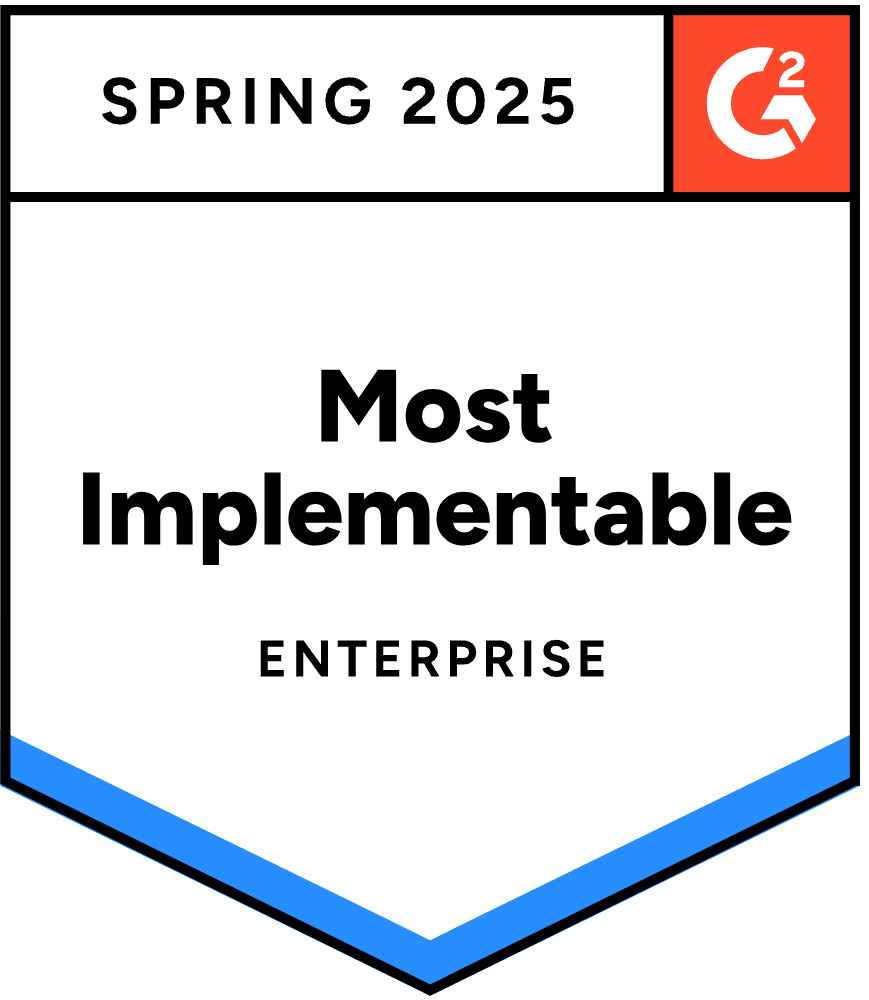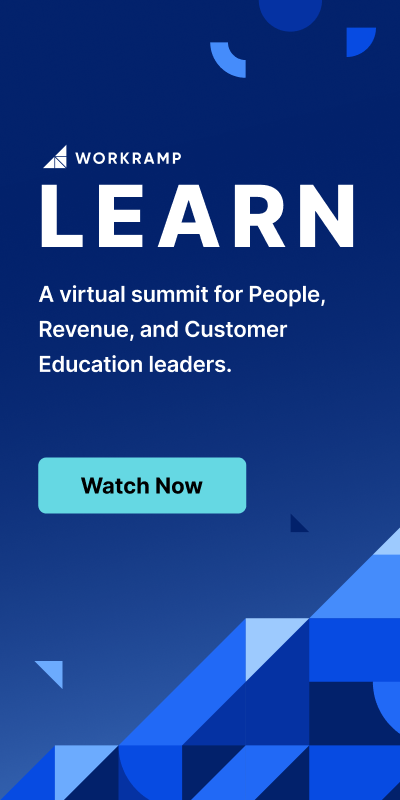The Rise of Edutainment – Supercharge Your Remote Learner Engagement
WorkRamp Contributor
Learning Tips Straight to Your Inbox
Informal learning comprises 75 percent of total employee learning, making it a crucial component in any workplace. Going remote, however, can be challenging for company culture—water cooler talk, lunch breaks with coworkers, and generating community is difficult in the virtual world.
In order to drive learner autonomy and increase motivation, companies need to rethink ways to deliver these virtual learning experiences. It’s now becoming more important than ever to start leveraging edutainment to create virtual frameworks for an informal learning culture.
In this post:
What is edutainment?
Edutainment involves mixing components of entertainment for educational purposes. This could include aspects of video games, toys, experiences, and more to make learning engaging and entertaining.
Traditional learning vs edutainment
Formal learning is the traditional method of education where a trainer or facilitator leads or presents information or activities to increase knowledge.
Edutainment, or informal learning, occurs when learning is organic and inconspicuously consumed. Research from the Pedagogy of Play Playbook by Project Zero demonstrates that playful learning aids in a mindset shift because learners at play are simultaneously engaged, relaxed, and challenged—a mindset that supports learning. It’s an invitation to connect experience to application through knowledge, a process that drives learner autonomy and confidence. This type of informal learning is often measured through observable behaviors such as engagement and motivation.
Informal learning is as much a state of mind as it is a method—an environment that encourages curiosity, innovation, and social learning. In a remote work world, companies should be thinking of ways to translate these values into a virtual culture. Creating informal opportunities for remote social engagement between employees can lead to the type of “water cooler talk” that excites, engages, and sparks curiosity. Any low-stakes intention to learn that generates conversation and innovation around knowledge is a great foundation for edutainment.
Ways to promote edutainment in the workplace
Add gamification elements
To edutain learners in a remote environment, gamification becomes one of the key ways to influence learning behaviors. Gamification raises learner motivation and engagement with elements like scoreboards and in-the-moment feedback.
Incorporating playful competition and visual kudos helps to set the tone for productive company culture, as well as gives your employees more ownership over their learning. A gamified training component designed with purpose and clear objectives can be a purposeful and fun way to introduce your new hires to the company.
In a virtual world, this might be as simple as leveraging a Learning Management System (LMS) to create challenges, roleplay scenarios, and leaderboards for your learners. Small prizes can be awarded to those at the top of the boards, incentivizing a culture of learning, mastery, and friendly competition.
Emphasize a company-wide leaderboard highlighting different team members to foster cross-department community, and build pride in representation. Connect the process of learning and mastery as the reward by linking it to professional development opportunities for the player.
Discussion threads
A central component of informal learning is socialization. Engagement means empowerment; your learners feel comfortable enough to ask questions in order to improve their performance. Low-pressure stakes of peer-to-peer interaction relax learners enough to focus on the task and encourage them to further pursue the answer amongst each other.
When learners collaborate, it helps to break down department silos and create a more inclusive, engaging workplace. Having a platform to ask low-stakes questions and share joy is especially important in the virtual world in order to foster and sustain an inclusive learning culture.
A prominent concern is how to incentivize or encourage learners to post and comment on these discussion threads. Building a routine around the mechanism of checking the threads can jump-start this informal learning process. Start with a lighthearted topic—a favorite TV show, movie, or book that one enjoyed during the pandemic—to generate natural and low-stakes conversation around personal interests.
This also familiarizes your employees with each other outside their usual departments and creates organic friendships. Once your learners have built a habit of checking and replying to the discussion thread, have your managers pose more complex prompts and questions.
Read more: What is Social Learning & How to Use it In the Workplace
Building learning communities
As edutainment breaks the formal learning norms of “knowledge deposits,” learning communities are a great way to further democratize education to have your employee vote on the next learning topics. Your learners gain self-autonomy by advocating for their interests, and the company responds by rewarding them with the knowledge they seek. It amplifies the idea of a learning culture as an evolving, adaptive variability as stated by the Pedagogy of Play.
Leverage your discussion threads to generate a topic of interest for your first Learning Community, and ensure that managers are giving props to active members. You want to make your learners feel that their curiosity is supported and encouraged by management. Self-directed adult learners should be made to feel that their learning is in their hands and that the company supports their drive to become better at their job.
As this Learning Community gains traction, keep an eye out for key players who can be leaders in this space—you want to build a strong system and routine for this new venture, but you also want to keep it running organically.
A new era in remote learning
Edutainment can feel daunting to implement in a remote or hybrid environment, but the key is understanding that the social-emotional space in which informal learning occurs is more of a culture than a strategy. Reward curiosity and active participants to draw more learners into the fold.
By understanding that learning is a lifelong venture, your team members will be more motivated to become their best through these strategies. Expand your company’s social culture to encourage, energize, and innovate around informal learning.
Interested in learning more about WorkRamp can help you elevate the employee learning experience? Contact us to schedule a free, personalized demo.
Complete the form for a custom demo.
Recent Posts
- Onboarding with an LMS: How to Set New Hires Up for Success July 16, 2025
- Why Secure LMS Platforms Are a Must for Regulated Industries July 10, 2025
- Top LMS Integrations That Power Smarter, Faster Learning July 2, 2025
- Introducing WorkRamp Analytics Studio: Unlocking Your Data Insights with AI June 30, 2025
- 11 AI LMS for AI-Powered Learning June 27, 2025
WorkRamp Contributor
You might also like
#WomenLEAD – Lessons on Remote Work with Asana, Zoom, Reddit, and More
This month, female leaders in Revenue Enablement, Customer Education, and L&D share the most impactful lessons of remote work.
Read More
The L&D Playbook on Organizational Development
Learning and Development (L&D) practitioner Mikayla Posk shares her guide to facilitating team and organizational development through experiential learning.
Read More
WorkRamp Awarded Top-Rated LMS Solution for 2021 by The Blueprint
WorkRamp has been named the 2021 Top LMS Solution for customers, partners, and employees by The Blueprint, a Motley Fool service.
Read More
Interested in elevating the learner experience?
Get in touch to learn how WorkRamp can help you achieve your training goals.
Request a Demo




